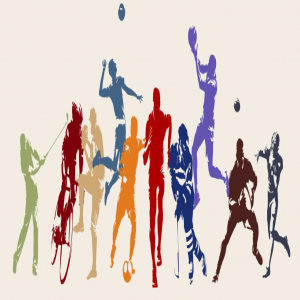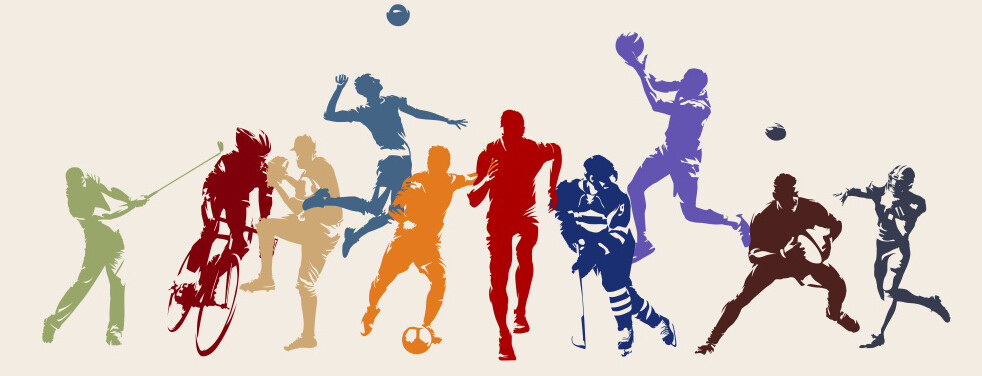
.jpg) Lancy Lobo
Lancy Lobo

India has won 41 Olympic medals in 124 years, while China won 88 in the last 16 days of the 2024 Olympics. Is there any correlation between Olympic medals and a country's development? Yes! There is a strong correlation between development, medals, and sports! A cursory glance at the medals tally shows that highly developed countries have many medals. In that order, America, China, Japan, Australia, France, Netherlands, Great Britain, South Korea, and Italy have stood on top of the table. Their development indices, too, show that they are at the top of the table.
India claims to be the fifth largest economy in the world, and its stakeholders claim it is a Vishwaguru. However, it needs factual support of high development indices and consequent sports development. Unfortunately, our leaders want to be world leaders but appear like emperors without clothes.
India is touted to be the fifth-largest economy in the world. However, it has slipped in many key indices. In the Human Development Index, it is 134; in the 2023 Global Hunger Index, it ranks 111 out of 125 countries. Of course, there are other pathetic indices, such as freedom of ex
Indian economy claims to be robust on account of GDP. There is no doubt that the Indian economy has grown. But is there equity in the distribution of growth to all citizens? In a high tide, all boats rise. But has that been the case in the development of the Indian economy? Have all sections of people benefitted or only a few?
According to the report, out of the 1.4 billion people in India, over a billion could not afford a healthy diet in 2021, raising the question of why only 813 million are covered by food assistance programs in India. The country reported the highest child-wasting rate, at 18.7 per cent. How can anyone expect them to take part in sports and athletics?
Sports and entertainment are also indicators of leisure time activities. If people are busy earning their livelihood and have no leisure time, how can they indulge in sports or entertainment?
The number of players who participated at the Paris Olympics from Gujarat is two, and from Haryana is 24. Gujarat won zero medals, and Haryana won 5. The budget sanctioned for Gujarat was 500 crores (20 per cent of the total for sports) and 60 cores (2 per cent) for Haryana. The government has spent unevenly in different states, so one must examine its logic. Despite the fat budget allocation for sports, Gujarat has sent just two persons to participate in the Paris Olympics and won no medals. Yet, one speaks of a Gujarat model of development!
Even in Haryana, which has sent most participants to the Olympics, individual initiatives have won medals with some state incentives. The Haryana wrestling federation has been in the public eye for a couple of years for the abuses of sportsmen and women.
It is said that the Gujarat development model has been replicated at the Centre. Subsequently, it shows no correlation between economic development and sports achievement or between the amount spent and subsequent sports achievement. The medals also show that individual events have succeeded in winning medals, except hockey, which has shown some resurgence. Hence, the hypothesis that economic development also leads to sports achievements does not hold in India as in other developed countries.
Apart from the state incentives, which are mismanaged and do not produce nurseries for athletics or sports, the individual initiative has brought some results in India.
One needs to question why, in India, sports and athletics are not rising globally. Why are our young men and women not keen on sports? Poverty and hunger levels may be one reason. However, one must question where the energies of our youth are spent. One may venture to say that the kind of activities that our young men and women are subjected to in India, such as communal riots, lynchings, para-militant organisations, engaging in state-sponsored "religious activities" like "pilgrimages," hate-mongering against minority communities. If the energies of our young men and women are spent on such activities, how could they take an interest in sports? Can our young men and women take a greater interest in sports than in the superficialities of religion? Most developed countries have less interest in the superficiality of religious behaviour.
Cricket has mesmerised and hypnotised this country. It has invested more money in this game than all others put together! This sport has caused obesity and stunted sports.
To claim to be a Vishwaguru is easy. But to achieve that status, one has to raise the economy and invest in sports. It has to 1) incentivise the young men and women by economically supporting them; 2) cut down the toxic atmosphere promoted by elements of a particular nationalism and promote civic nationalism; 3) liberate people from hunger so that they have the leisure to indulge in sports.
We in India make the noises at every Olympics and forget until the next Olympics. It is time to seriously consider raising our economic growth, distributing it equitably, and fostering systematic interest in young people to indulge in sports.